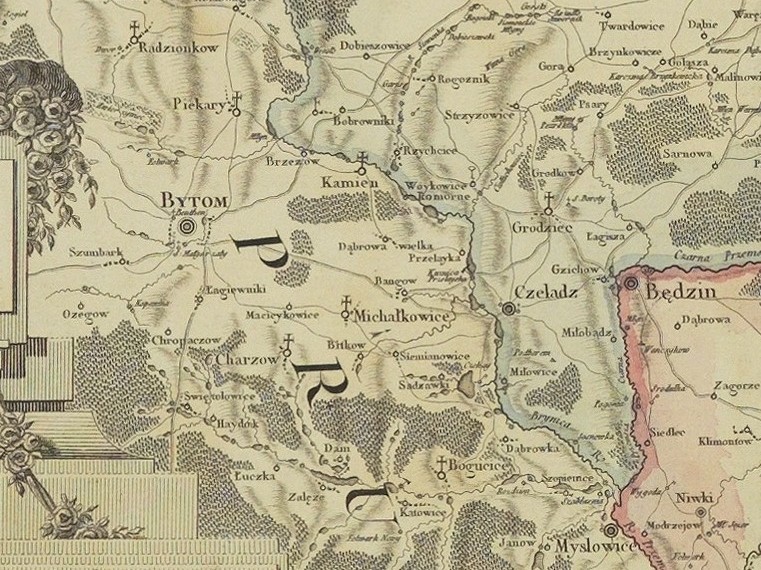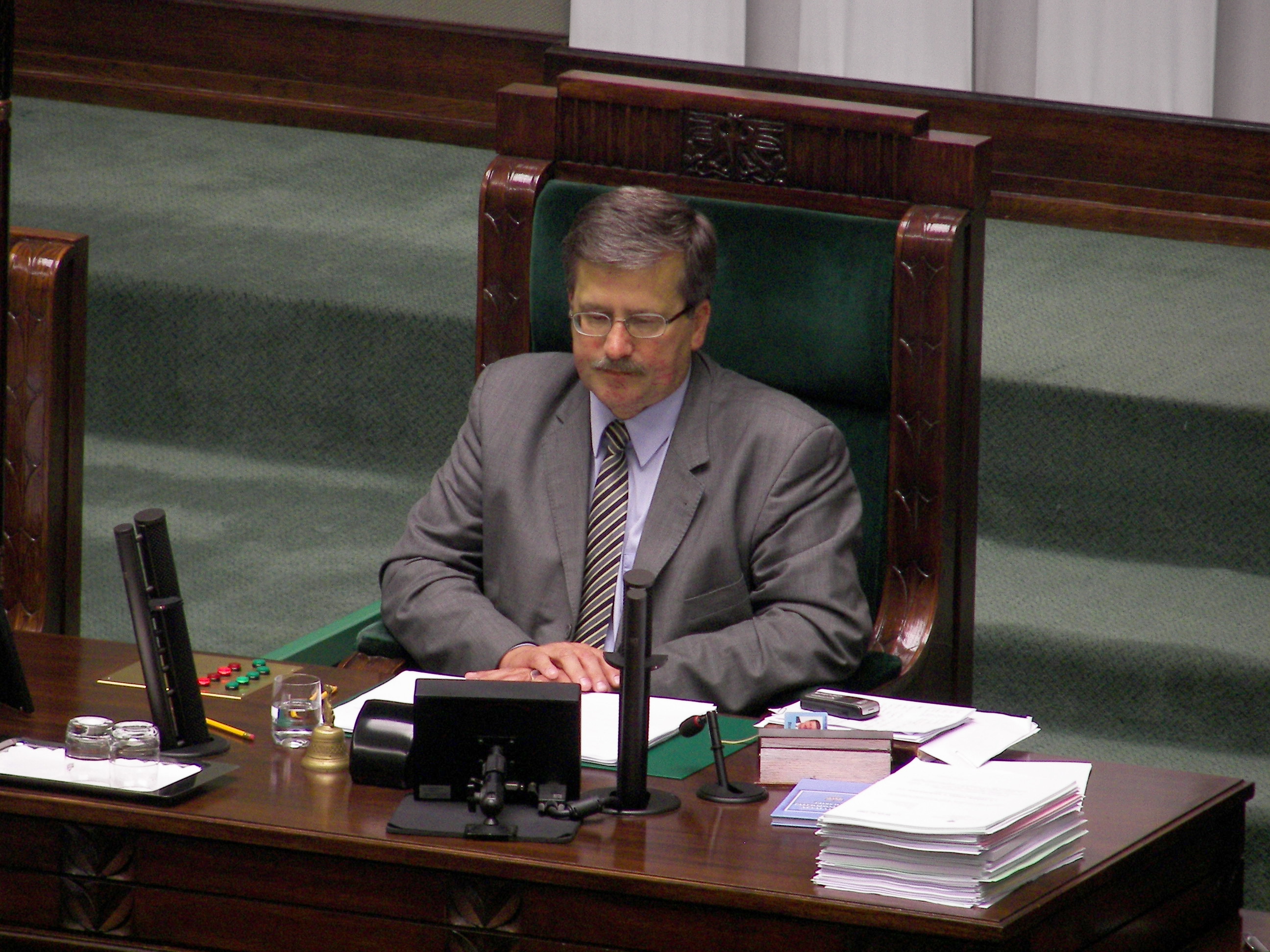|
Jan Kidawa-Błoński
Jan Kidawa-Błoński (born 12 February 1953, Chorzów) is a Polish film director, producer and screenwriter. Life He initially studied architecture at the Silesian University of Technology. In 1980, he graduated from the National Film School in Łódź where he studied filmmaking. For his debut film, ''Trzy stopy nad ziemią'' ("Three Feet Above the Ground") he was awarded the Złote Grono Award at the Łagów Film Festival. Between 1982-1991, he was a member of the ''Silesia'' Film Studio. He served as head of the Polish Filmmakers Association from 1990 to 1994. He also sat on the board of the Independent Film and Television Producers Association in the years 1997-2001. In 2005, he directed an award-winning film ''Destined for Blues'', which tells the story of his nephew Ryszard Riedel, lead singer of blues-rock band Dżem. In 2010, he won the Golden Lions Award at the 35th Gdynia Film Festival for his film ''Little Rose''. In 2014, he became the recipient of the Silver Medal fo ... [...More Info...] [...Related Items...] OR: [Wikipedia] [Google] [Baidu] |
Chorzów
Chorzów ( ; ; german: link=no, Königshütte ; szl, Chorzōw) is a city in the Silesia region of southern Poland, near Katowice. Chorzów is one of the central cities of the Upper Silesian Metropolitan Union – a metropolis with a population of 2 million. It is located in the Silesian Highlands, on the Rawa River (a tributary of the Vistula). Administratively, Chorzów is in the Silesian Voivodeship since 1999, previously Katowice Voivodeship, and before then, the Silesian Voivodeship. Chorzów is one of the cities of the 2.7 million conurbation – the Katowice urban area and within a greater Silesian metropolitan area with the population of about 5,294,000 people. The population within the city limits is 105,628 as of December 2021. History City name The city of Chorzów was formed in 1934–1939 by a merger of 4 adjacent cities: Chorzów, Królewska Huta, Nowe Hajduki and Hajduki Wielkie. The name of the oldest settlement ''Chorzów'' was applied to the amalgamat ... [...More Info...] [...Related Items...] OR: [Wikipedia] [Google] [Baidu] |
Dżem
Dżem is a blues rock band formed in Tychy, Poland. Ryszard Riedel, one of the most famous vocalists from Poland, worked with the band. Their songs include: "Czerwony jak cegła" (''Red as a Brick''), "Whisky", " Wehikuł czasu" (''Time Machine''), "Sen o Victorii" (''Dream about Victoria''), "Harley mój" (''My Harley''), "Mała aleja róż" (''Little Rose Avenue''), "Naiwne pytania" (''Sappy questions''), "List do M." (''Letter to M.'') and many more. They were the back-up band for Eric Clapton's concert in Gdynia on 14 August 2008. Name The band's name comes from English word ''jam session'' which has the same spelling pronunciation as the Polish word for "jam" in the sense of a fruit preserve. The band's original name was "Jam" but before one of their concerts a woman made a mistake when she wrote their name, writing "Dżem". Band members Current line-up * Adam Otręba – guitars, vocals (1973–present) * Benedykt "Beno" Otręba – bass guitar, vocals (1973–1976, ... [...More Info...] [...Related Items...] OR: [Wikipedia] [Google] [Baidu] |
Polish Screenwriters
Polish may refer to: * Anything from or related to Poland, a country in Europe * Polish language * Poles, people from Poland or of Polish descent * Polish chicken * Polish brothers (Mark Polish and Michael Polish, born 1970), American twin screenwriters Polish may refer to: * Polishing, the process of creating a smooth and shiny surface by rubbing or chemical action ** French polishing, polishing wood to a high gloss finish * Nail polish * Shoe polish * Polish (screenwriting), improving a script in smaller ways than in a rewrite See also * * * Polonaise (other) A polonaise ()) is a stately dance of Polish origin or a piece of music for this dance. Polonaise may also refer to: * Polonaises (Chopin), compositions by Frédéric Chopin ** Polonaise in A-flat major, Op. 53 (french: Polonaise héroïque, ... {{Disambiguation, surname Language and nationality disambiguation pages ... [...More Info...] [...Related Items...] OR: [Wikipedia] [Google] [Baidu] |
Living People
Related categories * :Year of birth missing (living people) / :Year of birth unknown * :Date of birth missing (living people) / :Date of birth unknown * :Place of birth missing (living people) / :Place of birth unknown * :Year of death missing / :Year of death unknown * :Date of death missing / :Date of death unknown * :Place of death missing / :Place of death unknown * :Missing middle or first names See also * :Dead people * :Template:L, which generates this category or death years, and birth year and sort keys. : {{DEFAULTSORT:Living people 21st-century people People by status ... [...More Info...] [...Related Items...] OR: [Wikipedia] [Google] [Baidu] |
1953 Births
Events January * January 6 – The Asian Socialist Conference opens in Rangoon, Burma. * January 12 – Estonian émigrés found a government-in-exile in Oslo. * January 14 ** Marshal Josip Broz Tito is chosen President of Yugoslavia. ** The CIA-sponsored Robertson Panel first meets to discuss the UFO phenomenon. * January 15 – Georg Dertinger, foreign minister of East Germany, is arrested for spying. * January 19 – 71.1% of all television sets in the United States are tuned into ''I Love Lucy'', to watch Lucy give birth to Little Ricky, which is more people than those who tune into Dwight Eisenhower's inauguration the next day. This record has yet to be broken. * January 20 – Dwight D. Eisenhower is sworn in as the 34th President of the United States. * January 24 ** Mau Mau Uprising: Rebels in Kenya kill the Ruck family (father, mother, and six-year-old son). ** Leader of East Germany Walter Ulbricht announces that agriculture will ... [...More Info...] [...Related Items...] OR: [Wikipedia] [Google] [Baidu] |
Polish Cinema
The history of cinema in Poland is almost as long as the history of cinematography, and it has universally recognized achievements, even though Polish films tend to be less commercially available than films from several other European nations. After World War II, the communist government built an auteur-based national cinema, trained hundreds of new directors and empowered them to make films. Filmmakers like Roman Polański, Krzysztof Kieślowski, Agnieszka Holland, Andrzej Wajda, Andrzej Żuławski, Andrzej Munk, and Jerzy Skolimowski impacted the development of Polish film-making. In more recent years, the industry has been producer-led with finance being the key to a film being made, and with many independent filmmakers of all genres, Polish productions tend to be more inspired by American film. History Early history The first cinema was founded in Łódź in 1899, several years after the invention of the Cinematograph. Initially dubbed ''Living Pictures Theatre'', it ga ... [...More Info...] [...Related Items...] OR: [Wikipedia] [Google] [Baidu] |
Bronisław Komorowski
Bronisław Maria Komorowski (; born 4 June 1952) is a Polish politician and historian who served as President of Poland from 2010 to 2015. Komorowski served as Minister of Defence from 2000 to 2001. As Marshal of the Sejm, Komorowski exercised the powers and duties of head of state following the death of President Lech Kaczyński in a plane crash on 10 April 2010. Komorowski was then the governing Civic Platform party's candidate in the resulting presidential election, which he won in the second round of voting on 4 July 2010. He was sworn in as President on 6 August 2010. Komorowski thus became the second person to serve on two occasions as Polish head of state since 1918, after Maciej Rataj. On 25 May 2015, Komorowski conceded the presidency of Poland to the rival candidate Andrzej Duda, after the latter won the second round of the 2015 presidential election. Early life and education Bronisław Maria Komorowski was born in Oborniki Śląskie. Born as a son of Zygmunt Le ... [...More Info...] [...Related Items...] OR: [Wikipedia] [Google] [Baidu] |
Medal For Merit To Culture - Gloria Artis
A medal or medallion is a small portable artistic object, a thin disc, normally of metal, carrying a design, usually on both sides. They typically have a commemorative purpose of some kind, and many are presented as awards. They may be intended to be worn, suspended from clothing or jewellery in some way, although this has not always been the case. They may be struck like a coin by dies or die-cast in a mould. A medal may be awarded to a person or organisation as a form of recognition for sporting, military, scientific, cultural, academic, or various other achievements. Military awards and decorations are more precise terms for certain types of state decoration. Medals may also be created for sale to commemorate particular individuals or events, or as works of artistic expression in their own right. In the past, medals commissioned for an individual, typically with their portrait, were often used as a form of diplomatic or personal gift, with no sense of being an award f ... [...More Info...] [...Related Items...] OR: [Wikipedia] [Google] [Baidu] |
Little Rose
Little Rose ( pl, Różyczka) is a 2010 Polish drama film directed by Jan Kidawa-Błoński. The lead actress Magdalena Boczarska received the IFFI Best Actor Award (Female): Silver Peacock Award at the 41st International Film Festival of India. Plot The film is set in 1967 to 1968. The attractive Kamila Sakowicz (Magdalena Boczarska) and Roman Rożek ( Robert Więckiewicz) are lovers. At first Kamila does not know that Roman is an officer in the Polish state security services. After some time, he invites her into his apartment. After several nights of passion Roman asks Kamila for a favor. Kamila is to approach the well-known author and literature professor Adam Warczewski ( Andrzej Seweryn) and report on his views and contacts. Kamila selects the pseudonym ''Różyczka'' (little rose). Roman claims Warczewski is a Zionist counter-revolutionary hiding his Jewish name Wajner behind the Polish name Warczewski. Kamila approaches the professor who invites her to his home and in ... [...More Info...] [...Related Items...] OR: [Wikipedia] [Google] [Baidu] |
Gdynia Film Festival
The Gdynia Film Festival (until 2011: Polish Film Festival, Polish: ''Festiwal Polskich Filmów Fabularnych w Gdyni'') is an annual film festival first held in Gdańsk (1974–1986), now held in Gdynia, Poland. It has taken place every year since 1974, except in 1982 and 1983 when Poland was under martial law. The organizers of the festival are the Ministry of Culture and National Heritage of Poland, Polish Film Institute (PISF), Polish Filmmakers Association, the Pomeranian Voivodeship Local Government as well as the port city of Gdynia. The Polish Film Festival award is the Grand Prix Golden Lions (Polish: ''Złote Lwy''), which is different from the Eagle (Polish: ''Orzeł''), awarded at the Polish Film Awards and the Seattle Polish Film Festival (Seattle is the sister city of Gdynia). Special awards include the Platinum Lions (''Platynowe Lwy'') conferred for lifetime achievements in cinema as well as the Audience Award. Krzysztof Kieślowski and Agnieszka Holland a ... [...More Info...] [...Related Items...] OR: [Wikipedia] [Google] [Baidu] |



